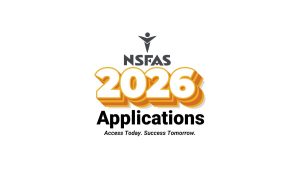The South African Social Security Agency (SASSA) has addressed concerns regarding the ongoing social grants review process, reiterating that no social grants have been suspended.
While there have been reports suggesting that grants are being halted, SASSA has emphasized that the current review is a standard procedure designed to ensure that only eligible individuals continue to receive assistance.
Temporary Delays, Not Suspensions
During this review process, some social grants may experience temporary delays as beneficiaries go through the necessary steps to confirm their eligibility. This process is vital for maintaining the integrity of the social assistance system, ensuring that the funds are allocated fairly and effectively, and preventing fraudulent claims.
SASSA’s CEO, Mr. Themba Matlou, clarified that the review is not intended to exclude deserving individuals but to protect public resources. It ensures that grants are only paid to those who are rightfully eligible. Matlou emphasized that, as per the Social Assistance legislation, beneficiaries are legally required to disclose all sources of income and report any changes to their financial situation. Non-compliance with these obligations may result in corrective measures, including potential suspension of grants.
Why the Review Is Necessary
According to Mr. Matlou, the review process serves several important purposes. It helps to confirm whether a beneficiary is still alive, whether they still qualify financially or medically, and whether they are still entitled to continue receiving grants. The review ensures that grants are not paid to individuals who have passed away or those who have begun earning income from other sources.
Furthermore, SASSA uses this process to prevent cases where individuals who no longer meet the eligibility criteria—whether due to changes in their financial or medical situation—are still receiving grants. The review is a key measure to protect the social assistance system from abuse and ensure it serves those who need it most.
Learn more: SASSA Issues Statement on Grant Delays and Review Process
What Beneficiaries Need to Do
If you are one of the beneficiaries who has been asked to complete a review, SASSA urges you to visit your nearest SASSA Local Office and provide the following documents:
Valid South African ID (13-digit barcoded ID or smart card).
Proof of income, including payslips, pension slips, or an affidavit if unemployed.
Bank statements from the last three months for all active bank accounts.
Proof of residence, such as a utility bill or a letter from a local authority.
Medical report (if applicable for disability or care dependency grants).
Marriage certificate or divorce decree (if applicable).
Death certificate (if applicable).
Birth certificates and proof of school attendance (for Child Support or Foster Care grants).
If you are bedridden or unable to visit a SASSA office, you can appoint a procurator (representative) to assist you with the process. Contact your local SASSA office for assistance with this.
Importance of Responding to SASSA’s Review Requests
Beneficiaries are strongly encouraged to respond to any review requests from SASSA. Ignoring or failing to comply with the review process could lead to delays in payments, the suspension of grants, or even legal action. It is crucial to stay engaged with the process to avoid any disruption in the support you receive.
Learn more: How to Confirm Your Banking Details with SASSA for Faster Payments
Streamlining the Review Process with Technology
SASSA is also working to modernize the review process by introducing self-service options through online platforms. This initiative aims to make it easier for beneficiaries to complete their reviews without having to visit SASSA offices in person, reducing long queues and improving efficiency. This move towards automation will benefit both beneficiaries and the agency, ensuring a smoother experience for all parties involved.
The social grants review process is an essential tool for ensuring the continued integrity of the social assistance system in South Africa. SASSA’s objective is clear: grants should be paid only to those who meet the eligibility criteria, and any misuse of public funds should be prevented.
Beneficiaries are urged to cooperate with the review process to ensure that their payments continue without interruption.
Frequently Asked Questions (FAQs)
1. What is a SASSA grant review?
A grant review is a routine check by SASSA to confirm if beneficiaries still qualify for their grants based on income, personal circumstances, or legal requirements.
2. How will I know if I need to go for a review?
SASSA will contact you directly via SMS, call, or letter. If you are unsure, visit your nearest SASSA office to check your status.
3. Do I need to reapply for my grant during a review?
No, you do not need to reapply for your grant. The review is a verification process, not a new application.
4. Can someone assist me with the review if I cannot go to the office?
Yes, you can send someone you trust to assist, but you must follow SASSA’s process to officially appoint them to act on your behalf.
5. Is there a fee for the grant review process?
No, the SASSA grant review process is free. Do not pay anyone claiming to speed up your review.
6. What should I do if I suspect fraud during the review process?
If you suspect fraud, report it to your nearest SASSA office or call the SASSA fraud hotline immediately.
7. Will my grant stop during the review?
Your grant should not be stopped if you respond promptly to review requests and provide the necessary information when asked.
By adhering to the requirements and providing the necessary documents, beneficiaries help SASSA maintain a fair and effective social assistance system that supports those who truly need it.
SASSA’s commitment to automating and streamlining the review process will make it easier for beneficiaries to stay on track and receive their grants on time, while also improving efficiency and reducing the burden on local offices.










